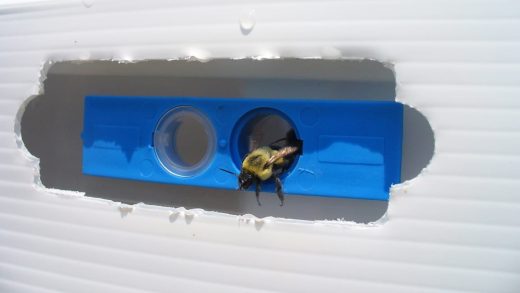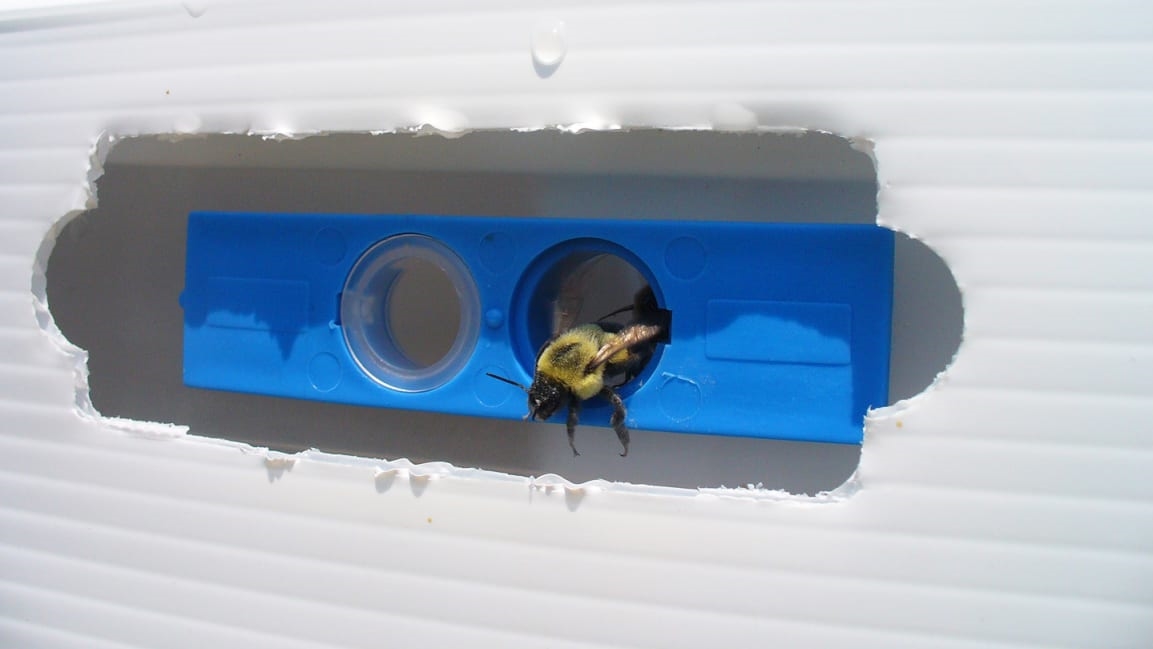There’s a new group of workers spreading organic pesticide on crops: bees
Bees are great at retrieving tiny cargo: their main job is to visit flowering plants in order to gather pollen and nectar for their hive. Now one pesticide company has gained federal permission to ensure they’re bringing something special along on each trip. The Canadian-based company Bee Vectoring Technologies just received EPA approval for an organic fungicide that bees can carry directly from hive to crop. The breakthrough could help farmers eliminate the need for chemical spraying.
It’s called Vectorite, a white powder that farmers place in special trays for honeybees or bumblebees to pass through as they exit their hive. Vectorite carries a refined form of Clonostachys rosea, a fungus that feeds on other types of fungi that damage crops.
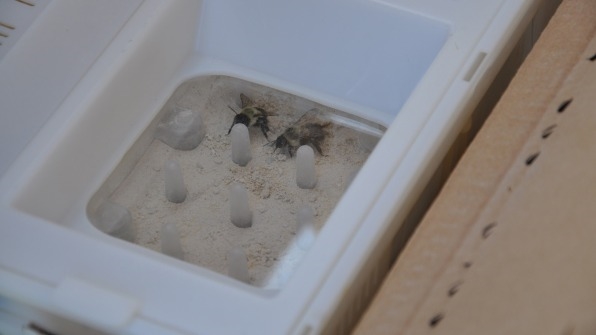
“This is the first bee-vectored product that the EPA has approved, so what we have really done is created a new category,” says BVT CEO Ashish Malik. In Florida, the company has used this system in commercial-size test fields to reduce gray mold on strawberries while increasing yields by at least 10%. In Georgia, it’s done the same thing with blueberries to eliminate gray mold and the more nefarious monilinia blight that causes “mummy berry” shriveling. (BVT has already proven its product doesn’t harm the insects that carry it.)
The exact impact of these applications vary by region because there may be different strains of pathogens, but Malik is hopeful that he can promise an increase of between 15% and 20% for those southern blueberry growers (although the exact net gain is still being calculated). In addition to those berries, the company sees its biotech as a great solution for sunflower and almond growers.
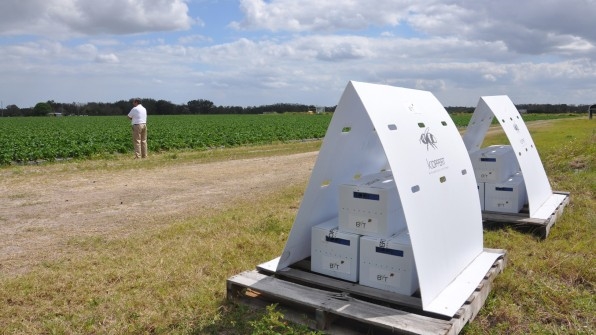
Part of the allure for farmers is that bees are more effective than spraying synthetic pesticides because they tend to visit flowering crops at exactly the right time to deliver their payloads. With conventional sprays, it can take several applications and still not soak everything, so the bee-based system ensures a wider and more consistent delivery service.
The other part is that many farmers are already in the business of contracting for visits from large scale swarms through commercial beekeepers or buy their own from companies that rear and ship whole hives. Fruit, nut, and seed farmers rely on bee pollination to ensure their crops get fertilized at the right time to produce the best yields. BVT’s tray systems are engineered to be specifically be adapted to these style hives.
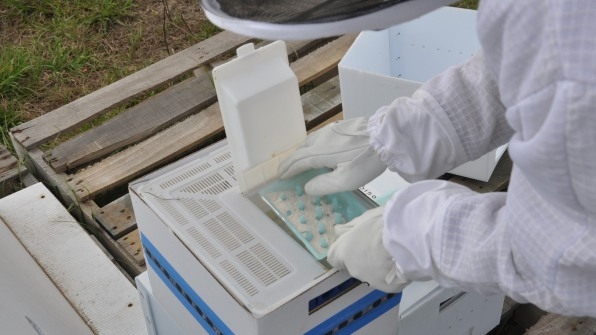
Vectorite may be organic, but BVT is targeting both conventional and organic farms. The company projects that it can reduce pesticide use by 50% to 75% at conventional farms that are willing to widely adopt the new practice. And as it develops and offers more types of pesticide protection, it could reduce pesticide use even more. “The beautiful part about our system is that you can deliver multiple microbes through that one flight the bees make, provided the microbes are safe to the bee,” says Malik.
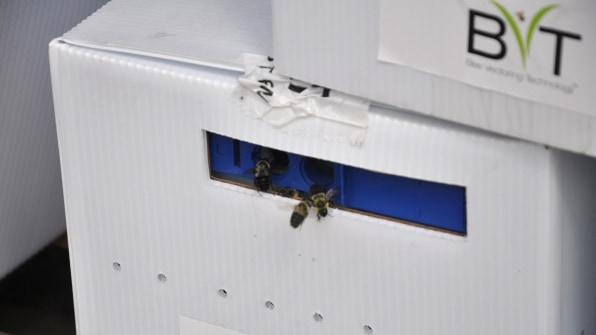
The company raised $3.1 million in funding in 2015 and has other operations pending their own country-specific approvals in Mexico and Southern Europe, along with interest in other places. “We can close the research phase. We can now talk about generating commercial revenue and building the business back up, not only in the U.S. but ultimately globally,” he says.
Doing so in a way that eliminates reliance on synthetic pesticides is both cost-effective and good for the environment. BVT has previously projected that services will be extremely competitive against traditional methods. And controlling diseases like botrytis more uniformly ensures that as more fruit hits stores, some of it will have a longer shelf life. The company’s early estimate was 10 to 12 more days of ripeness in some cases. Now you have two reasons to thank bees for your fresh fruits.
(32)

